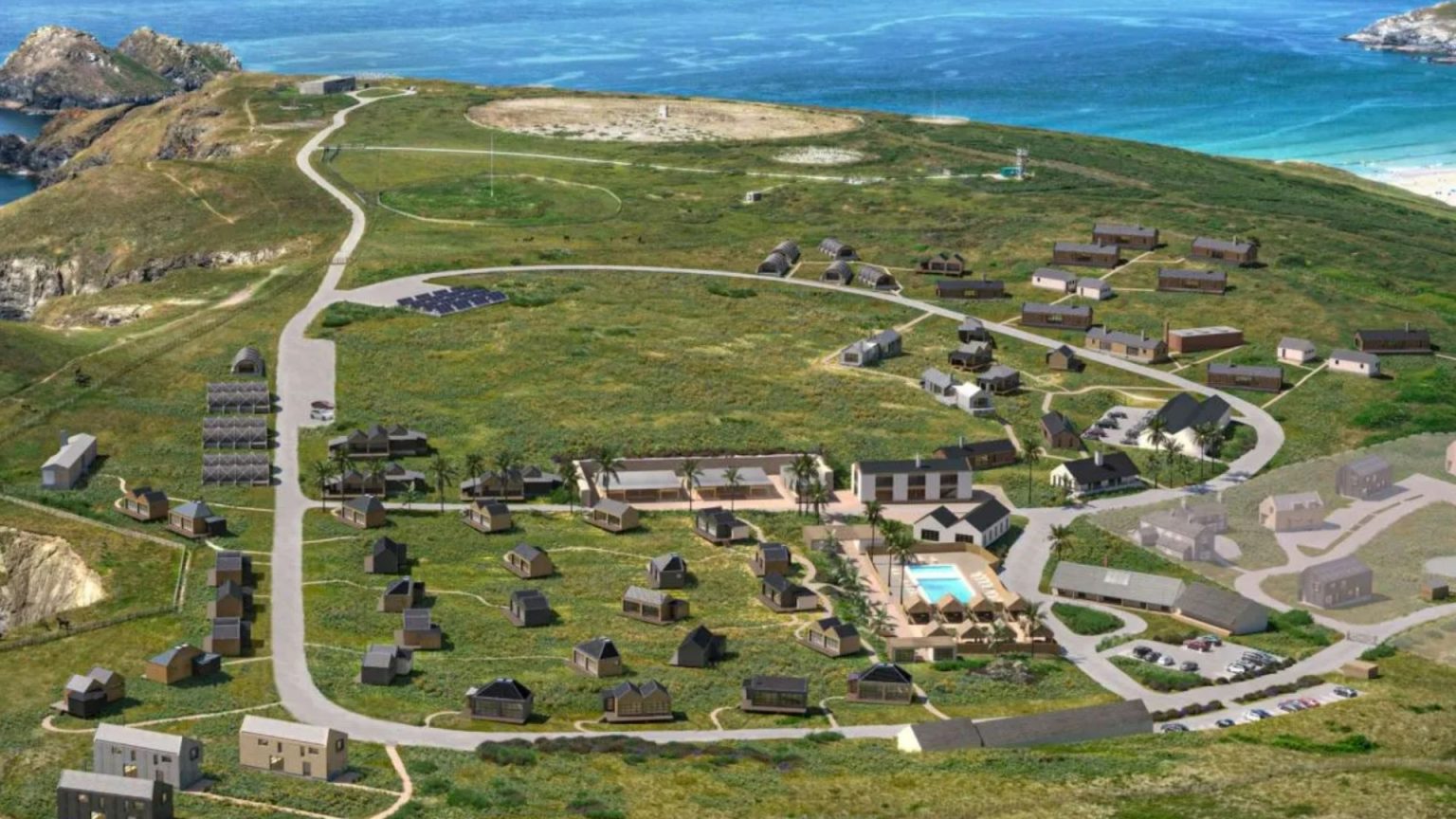A proposed luxury campsite in Cornwall, set on the grounds of a former military site at Penhale Camp, has ignited controversy among locals. The ambitious project, put forward by Clerkenwell Estates (Holywell Bay) Ltd, envisions a 67-unit holiday park complete with a swimming pool, spa, restaurant, bar, and staff facilities. Nine new homes are also planned for the site, alongside the refurbishment of existing buildings, including a historic farmhouse. The location boasts proximity to the scenic Holywell Bay Beach, a popular destination for swimmers and surfers, and a haven for children during low tide with its shallow streams and rock pools. While the prospect of a new holiday destination may seem appealing, the development faces strong opposition due to its location within a sensitive ecological area.
The proposed campsite sits within an area designated as a Site of Special Scientific Interest (SSSI) and a Special Area of Conservation, home to some of Europe’s rarest flora and fauna. The Penhale Dunes and Kelsey Head, encompassing the proposed development site, are crucial habitats for rare plants, butterflies, insects, and falcons. This delicate ecosystem has been under protection for decades, and the local community fears the campsite will disrupt the fragile balance of the environment. The planning application is currently under review by the Cornwall Council Planning Committee, with a decision expected later this month. The outcome will significantly impact the future of this unique coastal area, weighing the potential economic benefits of the development against the preservation of a valuable natural habitat.
The developers’ vision for the Penhale Camp site aligns with the growing trend of upscale camping experiences. Beyond basic tent pitches, modern campsites increasingly offer a range of amenities, including swimming pools, spas, restaurants, and comfortable lodging options like holiday lodges. This rise in “glamping” and luxury camping caters to a growing demand for outdoor holidays that combine nature with comfort and convenience. The proposed Cornish campsite aims to capture this market, providing a comprehensive holiday experience in a picturesque coastal setting. However, the project’s success hinges on navigating the complex considerations of environmental impact and community concerns.
The controversy surrounding the Penhale Camp proposal highlights the ongoing tension between development and conservation. Across the UK, similar debates are playing out as developers seek to capitalize on the demand for holiday accommodations, often in areas of natural beauty. The challenge lies in finding a balance that allows for economic growth and tourism while safeguarding the environment and respecting the concerns of local communities. The decision facing the Cornwall Council Planning Committee will set a precedent for future development proposals in ecologically sensitive areas, highlighting the need for careful consideration of environmental impact alongside economic benefits.
While the fate of the Penhale Camp campsite hangs in the balance, the UK camping scene continues to thrive. Recent surveys and reviews highlight the popularity of camping holidays, with campsites across the country receiving accolades for their facilities and guest experiences. The Pitchup platform, a leading camping resource, recently published a list of the best campsites in the UK based on over 200,000 customer reviews. This recognition underscores the enduring appeal of camping, from basic tent pitches to luxury glamping experiences. The demand for quality campsites is evident, and the Penhale Camp proposal, if approved, would enter a competitive market seeking to cater to a diverse range of camping preferences.
Expert advice for aspiring campers emphasizes preparation and awareness. Seasoned campers recommend testing equipment, particularly tents, before embarking on a trip. Choosing a suitable tent pitch, considering ground conditions and potential hazards, is crucial for a comfortable and safe camping experience. Awareness of weather conditions is also paramount, avoiding naps in tents during hot weather to prevent heatstroke. These tips underscore the importance of responsible camping practices, ensuring both a positive experience and minimal impact on the environment. The growing popularity of camping highlights the need for both campers and campsite developers to prioritize sustainable practices and respect the natural surroundings that make these holidays so appealing.










